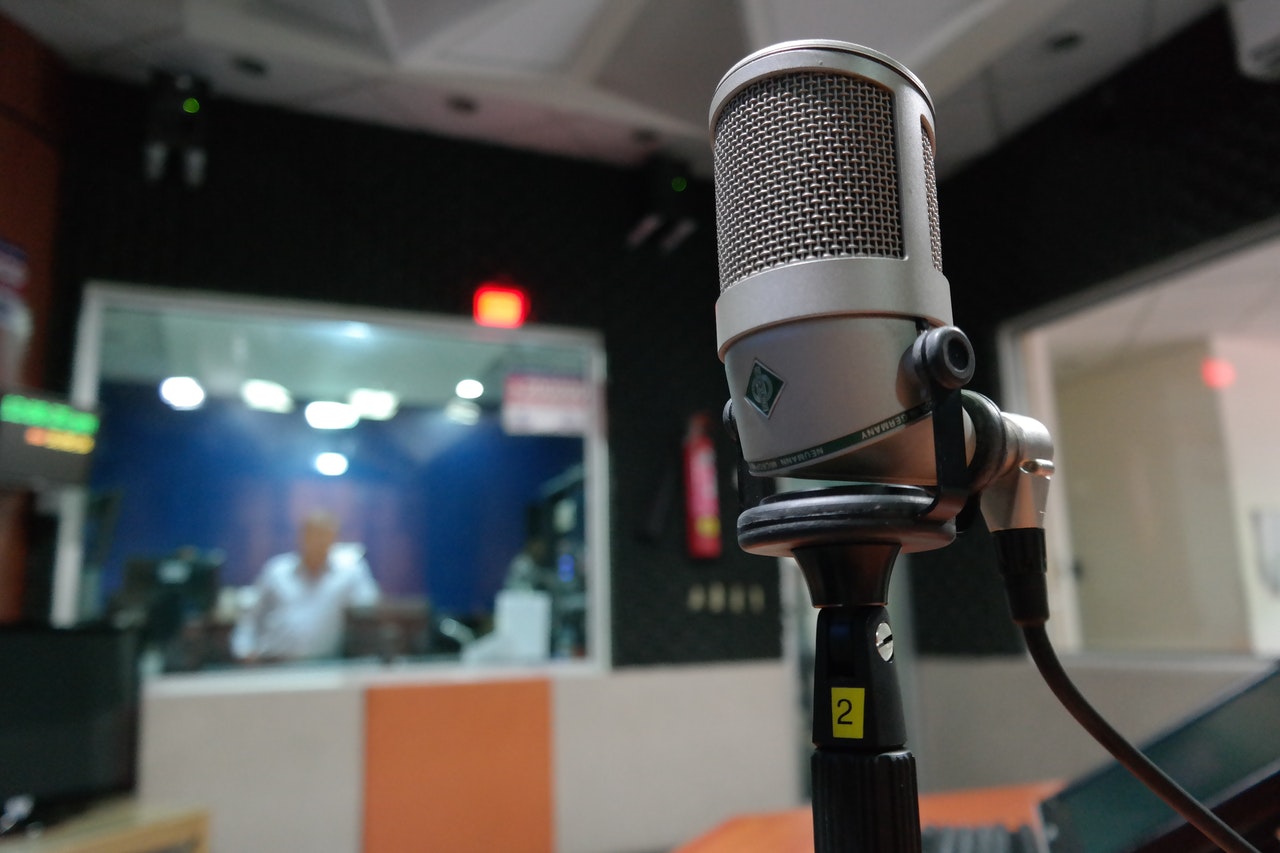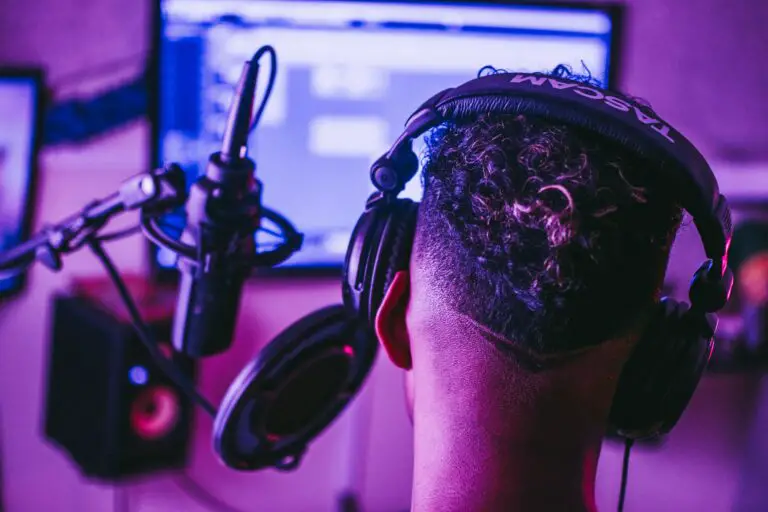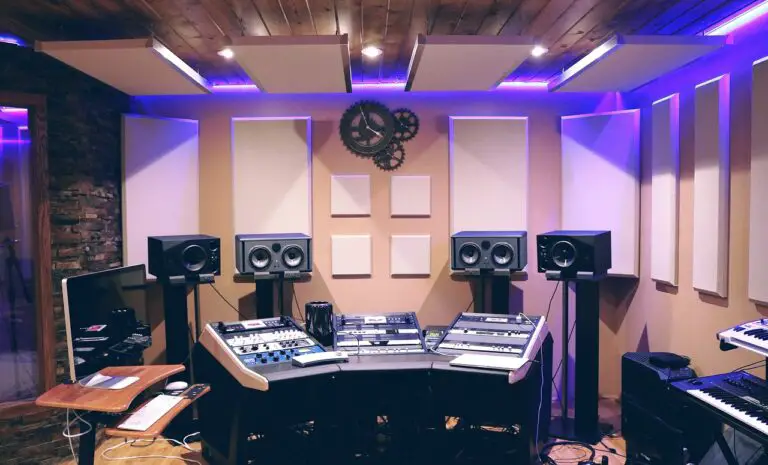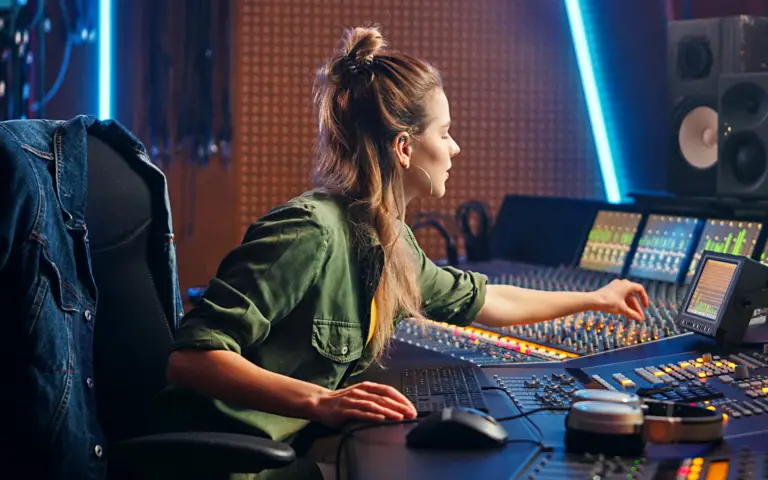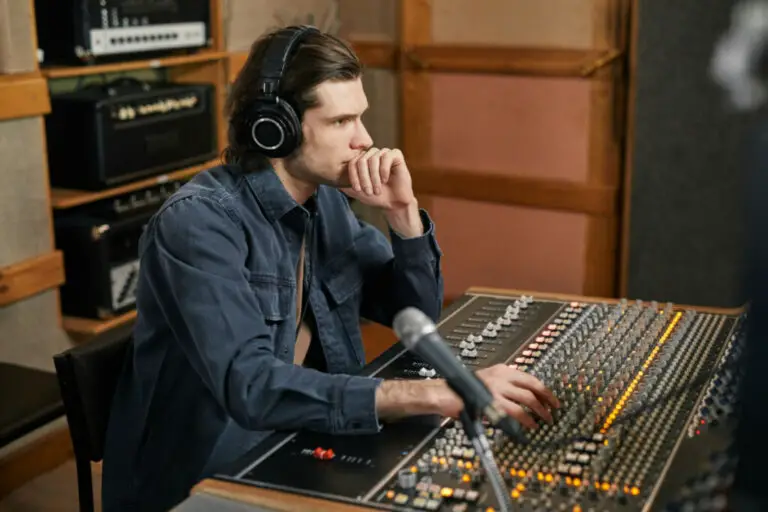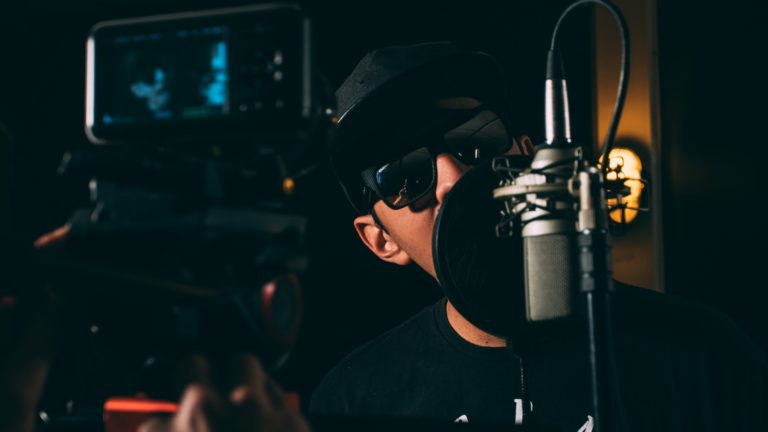What To Bring to a Recording Studio (Equipment Guide)
Recording studios usually charge around $100 per hour, so you can understand why you’d want to make the most of your time there. Being prepared requires bringing the right things with you so you’re not caught off guard. If this is your first time doing a recording session (congratulations, by the way), you must pack carefully.
What should you bring to a recording studio? Anything that you can’t imagine making music without. Your favorite guitar, the laptop you keep audio files on, and water to keep your singing voice happy are some examples of what you might need to bring. Ultimately, it will come down to your preferences and music style.
We put this guide together to help you create your perfect packing list. Afterward, you’ll be able to attack your recording studio session viciously — with music, that is.
What Studio Equipment to Bring to a Recording Session
Not every artist has the same process when it comes to recording music. This is why you’re not going to find the perfect “studio packing list” online. What works for one won’t work for another.
Generally, you’ll want to bring the equipment you usually use when playing for leisure. Learning to use a different instrument or computer, for example, will waste precious time and money.
Here are some recording session staples:
Your Instruments
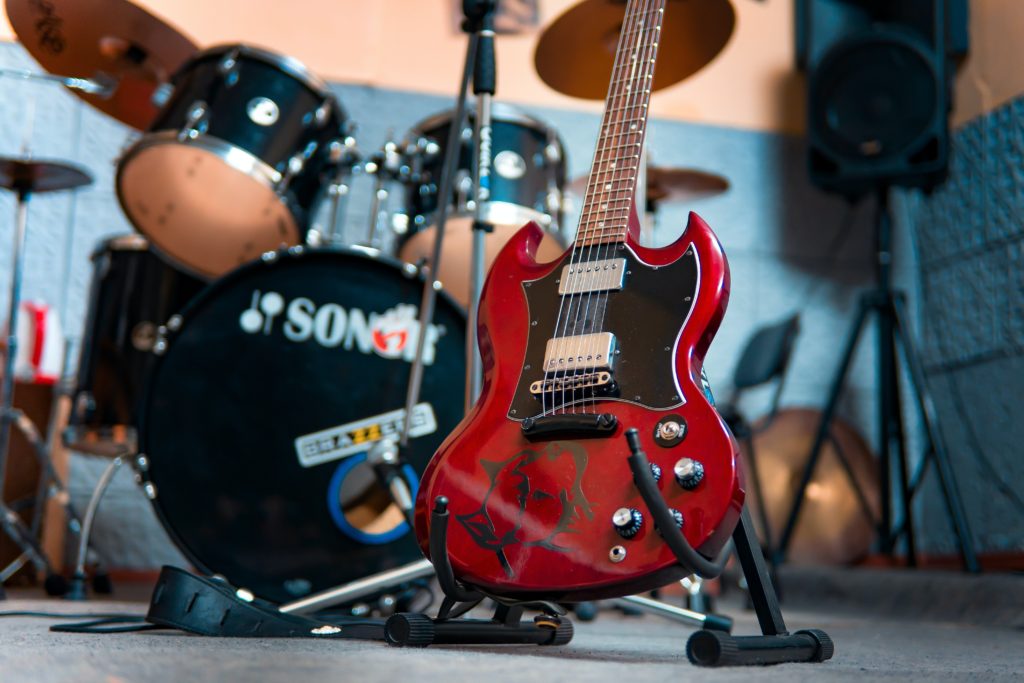
When a friend lets you drive their car, you might go slowly at first. The mirrors are in different positions, you’re higher or lower to the road, and the accelerator is more or less responsive. You’ll encounter a similar issue at a recording studio if you have to borrow an instrument.
A favorite instrument is like a child to some degree. You know what it likes and doesn’t like. You know how hard it wants to be strummed, hit, or blown into to bring out the best sound. Most importantly, you’re comfortable with it, and it’ll help the recording studio feel like home.
If you’re going with a group, let everyone know the importance of what we mentioned. If you’re going solo, bring all the instruments you have to record the main parts of the songs. There may be equipment available as a backup if you don’t have a particular instrument or your instruments are subpar. Just be sure to check in with the studio first.
Laptop
Like your instruments, using a computer that isn’t yours is a learning curve you don’t have time for. If you have a laptop that can store song files, bring it! This is where you’ll be putting the fruits of your labor: the audio files you recorded.
Before you bring it, check how much storage is on your hard drive. You should have at least 10 gigabytes of free space to be on the safe side. The last thing you want is to stop short of your recording goals because you ran out of room. If you’re low on space, take some time to clear your hard drive. Uninstall some seldom-used software and games, run disk cleanup, or migrate files to the cloud.
If you’re going to make a habit of using the recording studio, an external hard drive can be your best friend. An external hard drive can also save your song files if you don’t have a laptop. Whatever the case, going to a recording studio without adequate hard drive storage is like going into the grocery store without a cart.
Phone or Camera
If you’re like most people, we don’t need to tell you to bring your phone with you. However, we should emphasize getting a phone with a decent camera or a high-quality standalone camera if you have one.
Why?
Promotion, promotion, promotion.
There’s no understating the importance of social media in getting your name out there these days. Assuming you’re going to the recording studio to put together songs that’ll make you money, Instagram can get you the recognition you need. As you probably know, quality images are crucial in today’s visual internet culture.
The best images to take during a recording session are self-shots of you doing what you love. If you’re with bandmates, designate someone with decent photography skills to take candid shots of you during a take. Make frequent use of the camera’s timer to take photos with everyone in the frame, and take more pictures than you think you need.
Earplugs
Things can get loud during an energetic recording session. If you’re going to be in the room with an aggressive drummer, you’ll want to protect your hearing with earplugs. As a musician, a good sense of hearing is essential.
What kind of earplugs should you bring?
Choose a pair that balances comfort and effectiveness. You need to protect your hearing without needing to remove your earplugs every five minutes due to discomfort. You also want something that works better than sticking cotton in your ear. Ideally, choose earplugs that are for at least 30 decibels.
Drinks
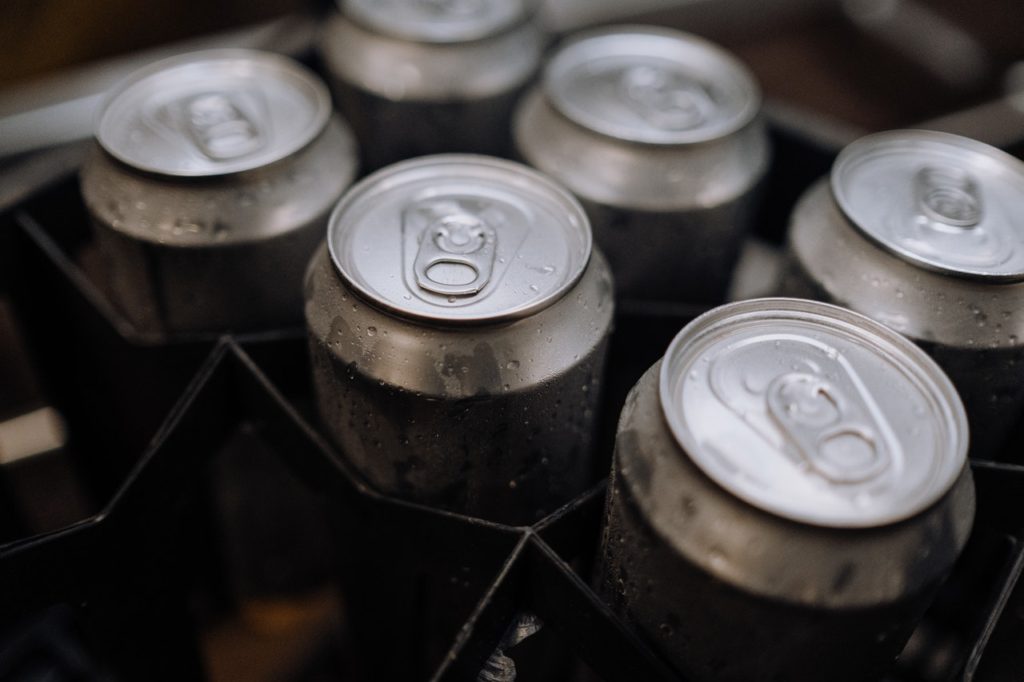
Being well-hydrated is important for — well, absolutely everything. If you plan to sing, however, you must bring drinks. Your vocal cords are delicate tissues that don’t like to be dry.
Having enough moisture in your throat makes singing easier. On a more serious note, neglecting to bring a few bottles of water (or cans of energy drinks) can permanently damage your voice.
For everybody else who isn’t singing, you should still bring drinks. Plus, hydration affects muscle contraction. This is just as applicable to strumming a guitar and hitting drums as it is to jogging and weightlifting. While some studios may provide drinks, it’s best to be on the safe side by bringing your own.
Snacks
Hunger, like thirst, is no good when you’re trying to put together an album. Many studios don’t provide snacks, and if they do, there’s no guarantee that you’ll like them.
Pack a lunchbox with some nourishing foods. We’re not going to dive into different snacks’ healthiness, but you should pack something that will satisfy your hunger. In other words, mixed nuts are better than jelly beans.
The goal is to avoid getting ravenous. Remember, studio time is expensive, so don’t let hunger hamper your productivity.
A Gameplan
Now to the most important thing of all: a plan for what you’re going to do. You don’t want to waste the studio time you’re paying for to think of what you’re going to do. You need to write this down in advance, in a physical journal or on your phone, and bring that plan with you.
When you’re putting together you’re gameplan, ask yourself these questions:
- What songs need to be recorded?
- What’s a good time to take a break?
- How long to warm up?
- Which parts are going to be the hardest to record? (Do these first)
Once you’ve put something tangible together, you’ll be able to cross things off as you go. This saves a ton of time.
What Equipment do Recording Studios Provide?
You might be asking yourself, “Aren’t recording studios supposed to have that stuff? Isn’t that what I’m paying for?” Well, yes and no.
See, recording studios generally provide what most musicians already don’t. This includes equipment like ultra-high-end condenser mics, expensive digital audio workstation (DAW) software, mixers, amps, preamps, and everything else you need to make premium recordings.
However, it’s wise to bring the essentials yourself. Studios may have everything you need, but there can be exceptions, and you don’t want to be caught unprepared. Plus, the more amenities a studio has, the more it’ll cost each hour. You can save some money by bringing the basics and going to a cheaper studio with only the stuff you need.
Why Go to a Recording Studio?
Many people like to talk about the luxuries of having a home studio. However, the same people don’t want to talk about how much money they had to spend on equipment. While recording studios aren’t cheap, they are far more affordable than buying equipment.
For home studios to become more cost-effective, you’ll need to go to dozens of sessions. While you may consider making several albums in the future, going to a recording studio will give you what you need to release your first albums. Once those start bringing in revenue, you may have the option of building a home studio for future recordings. If you reach that point, go for it!
However, the most significant advantage of going to a recording studio is qualified sound engineers. These professionals know exactly how to make you sound as good (audio quality-wise) as the most famous musicians on the radio and Spotify. They know your business is on the line, so they’ll use all the tricks of the trade, from balancing audio levels to mixing and mastering the final take. Great music production is ultimately a very scientific craft. Having someone help you out with that is a significant boon to how legit your album sounds when you release it.

